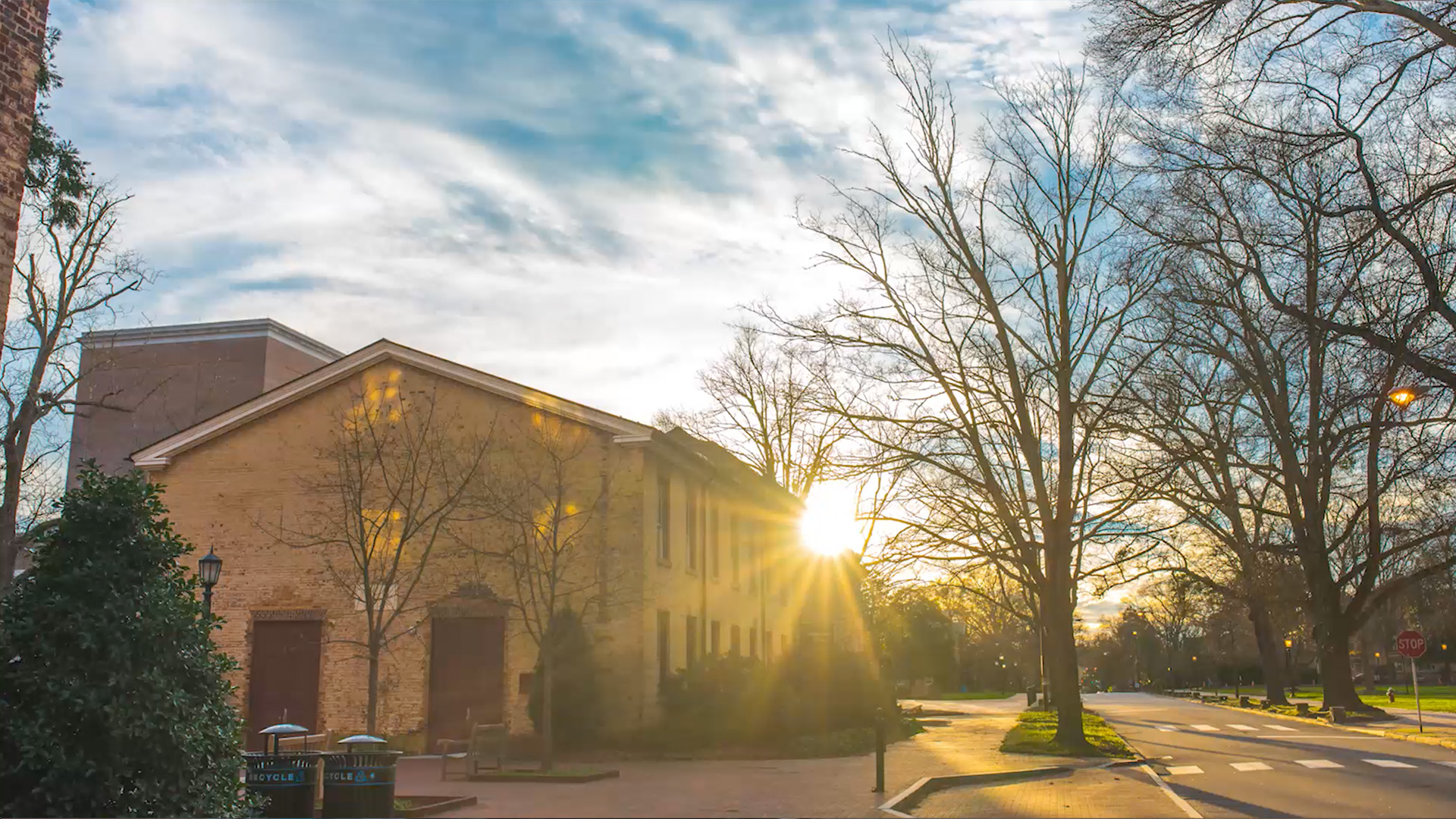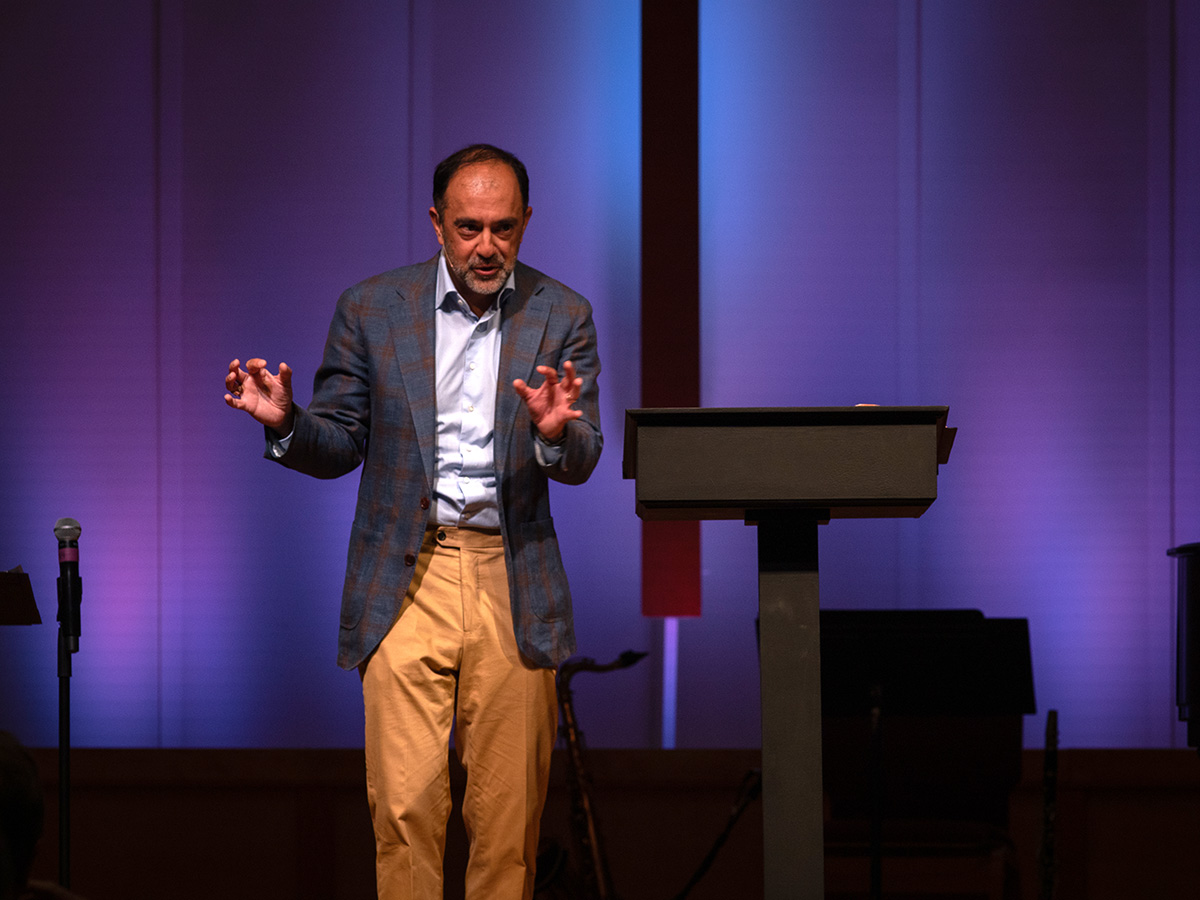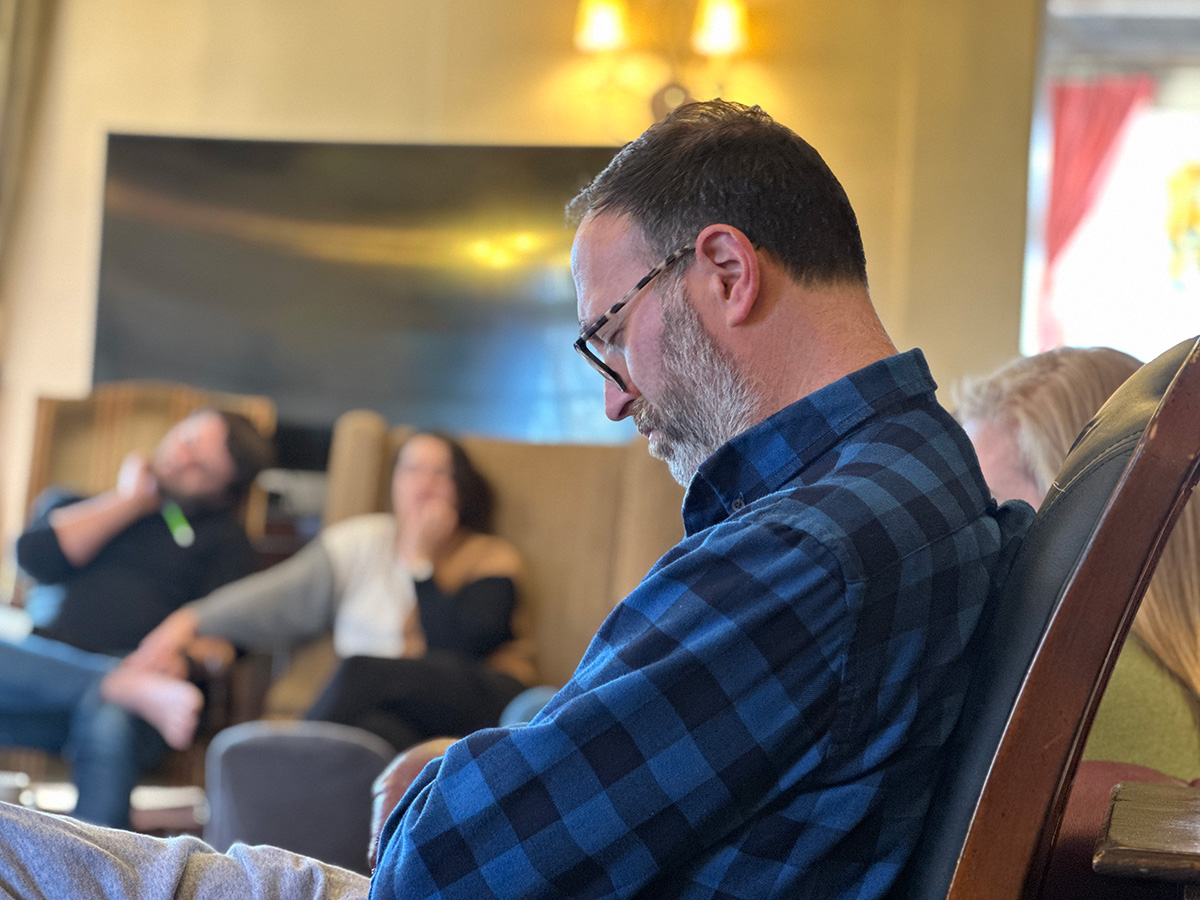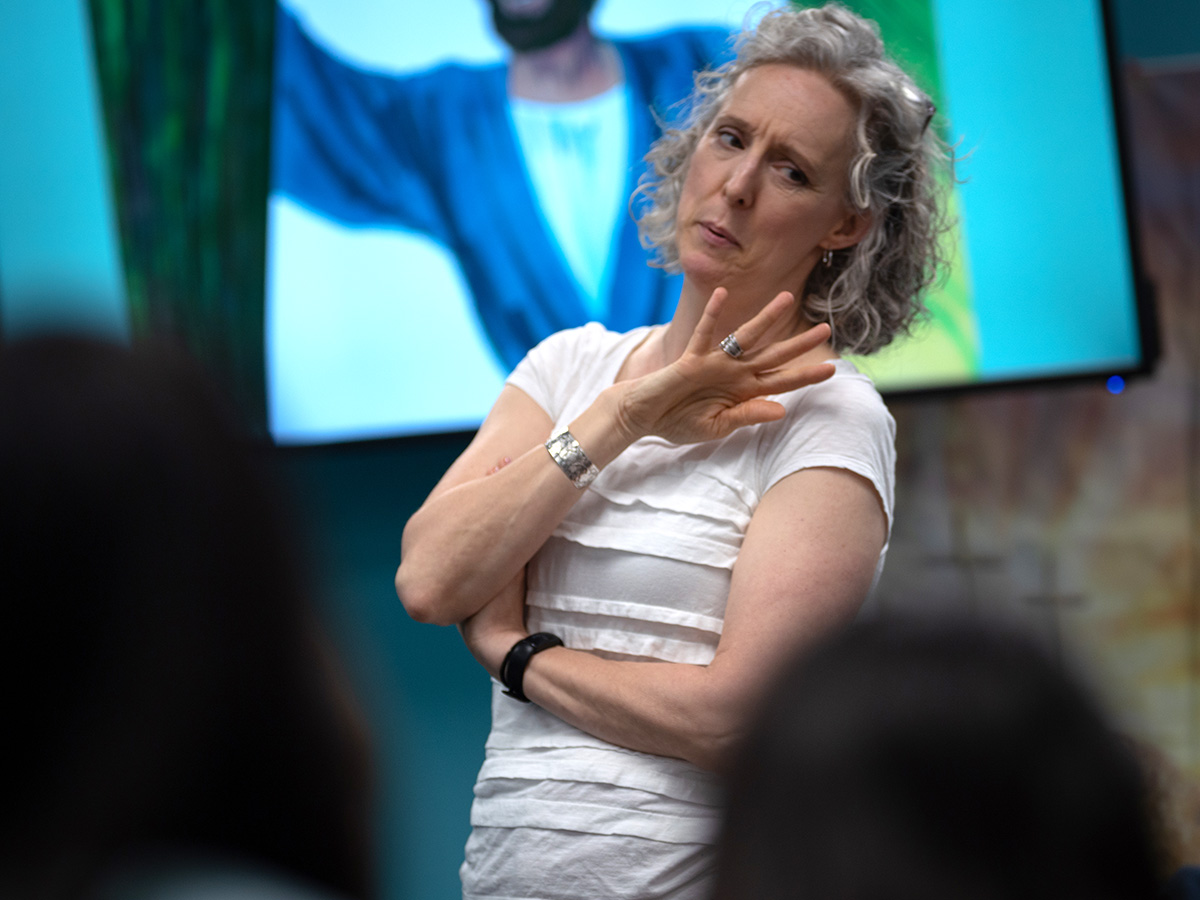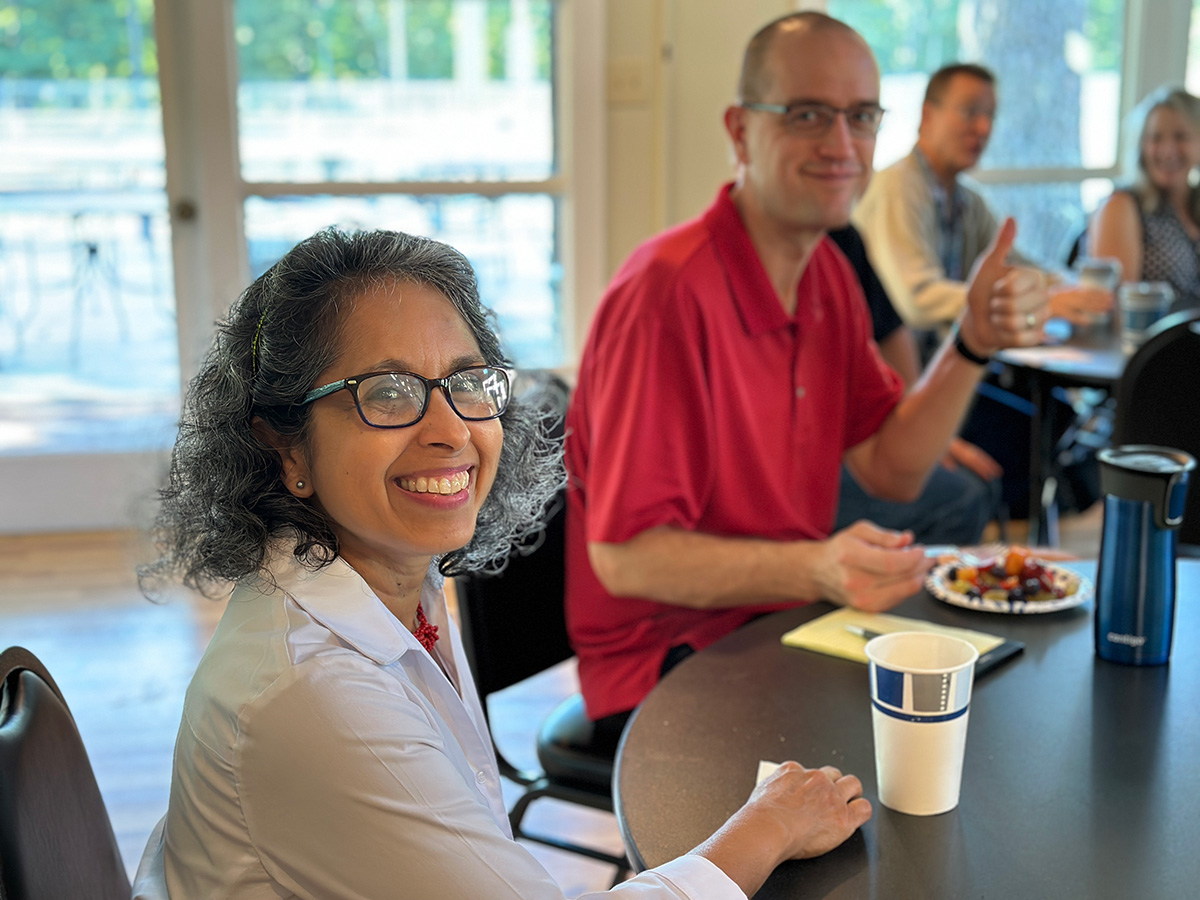
Welcome to the Bible Church!
Chapel Hill Bible Church is a non-denominational church, comprised of people who worship Jesus Christ and want Him to be known in our city and the world. We believe in the truth of the Bible, and we strive to live out our faith individually and together.
Our church reflects the Triangle and its universities, with a diverse gathering of people from all stages of life and spiritual development. We are not committed to just one race, age group, or demographic; we want to reach every person with the Gospel.
The Gospel is the life-changing good news that Jesus lived, died, and was raised to give us life–now and forever.
The Bible Church is a community that offers many opportunities for people to grow in their relationship with Jesus, such as life groups, adult and children’s Sunday school, and dynamic worship music. We are a church that loves people and wants to feed them from God’s Word, challenge them to grow, and invite them to use their gifts to serve.
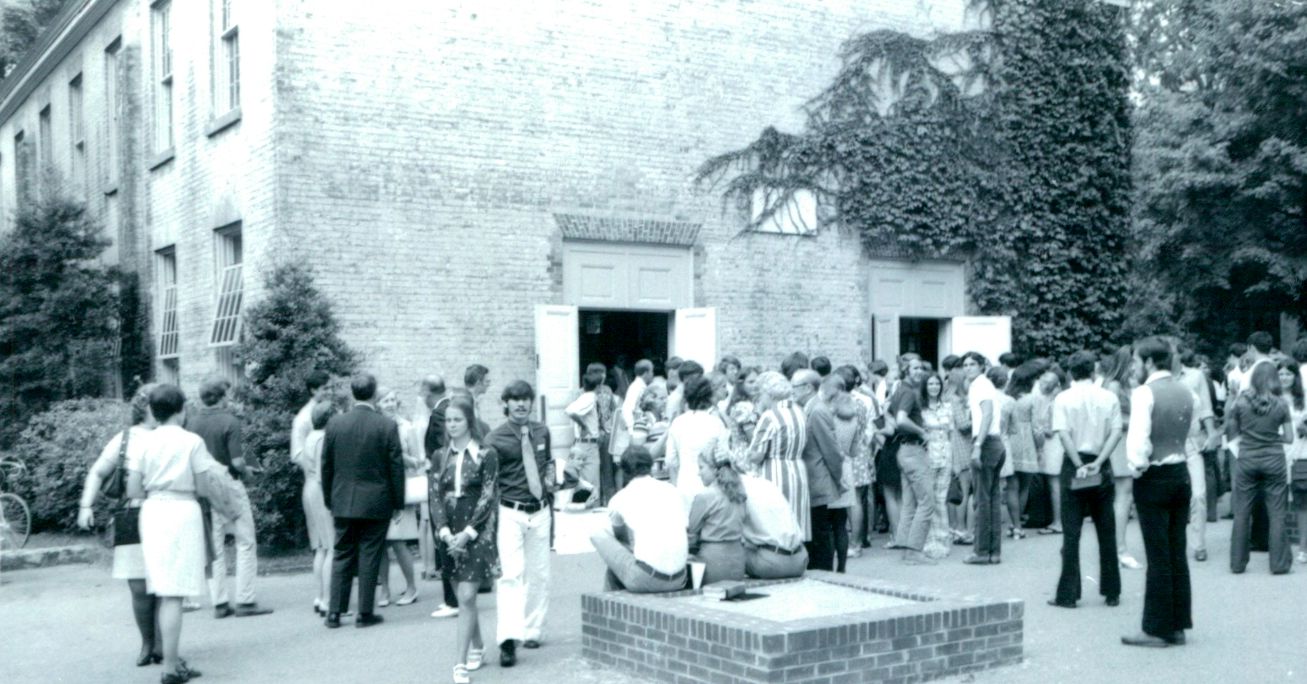
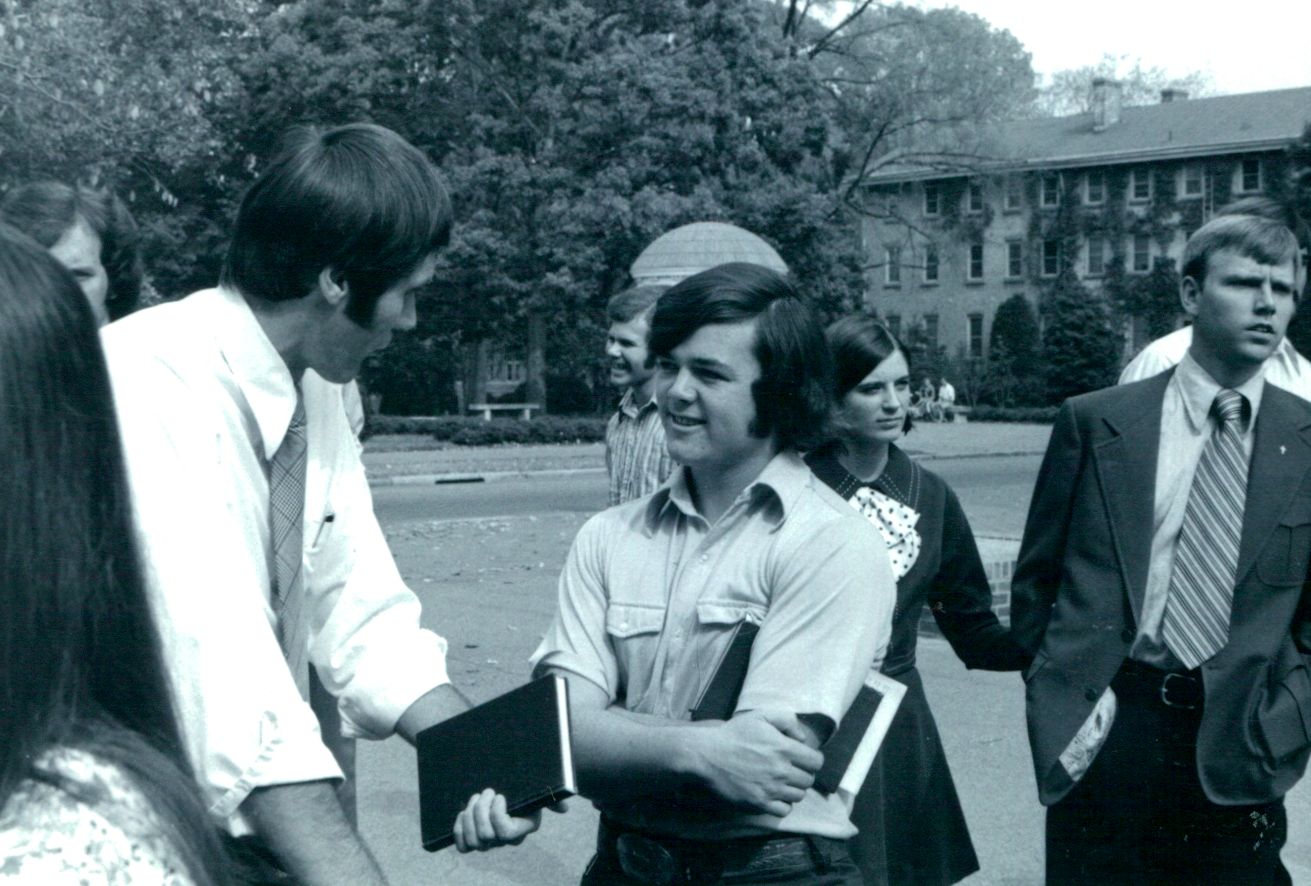
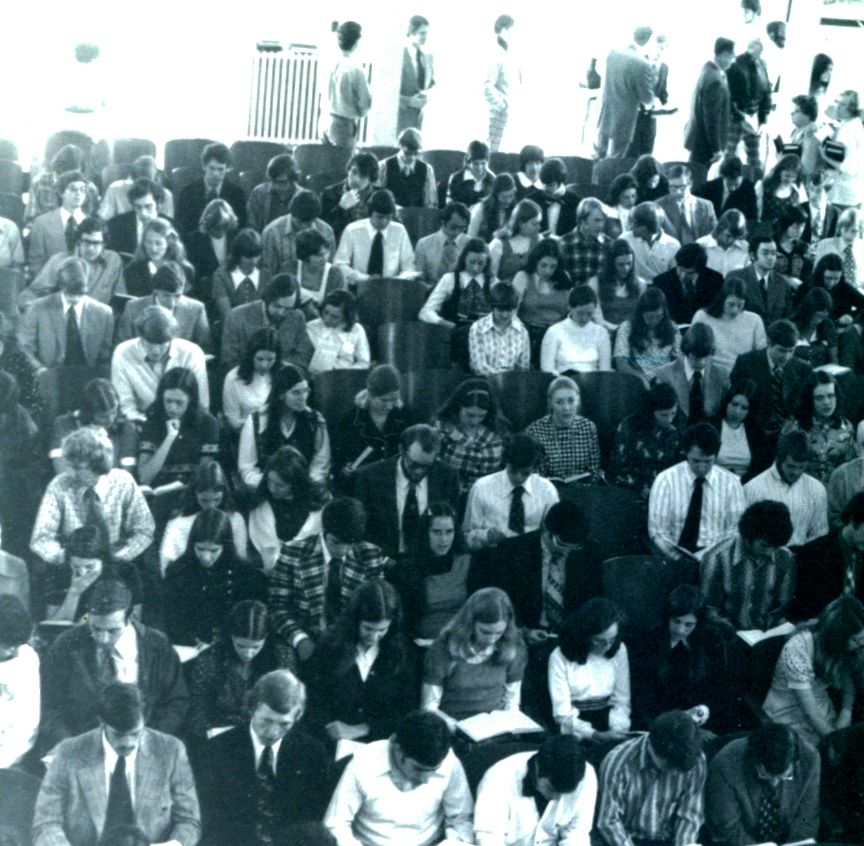
Committed to Teaching the Bible Since 1970
In the beginning, the Chapel Hill community was formless and void... of an evangelical church. And God, along with some students, said, “Let there be the Chapel Hill Bible Church,” and it was so. And it was good. 😜
On the UNC campus, in Gerrard Hall (and sometimes the Institute of Government), for $10 per week, a group of college students began to meet to study the Bible. Within a year, that small group grew to over 600 college students meeting weekly to study the Bible and worship together. Fast forward 50 years and two locations later, Chapel Hill Bible Church stands strong to its commitment to gather as a body of believers to open God’s Word and discipling others in the Christian faith.
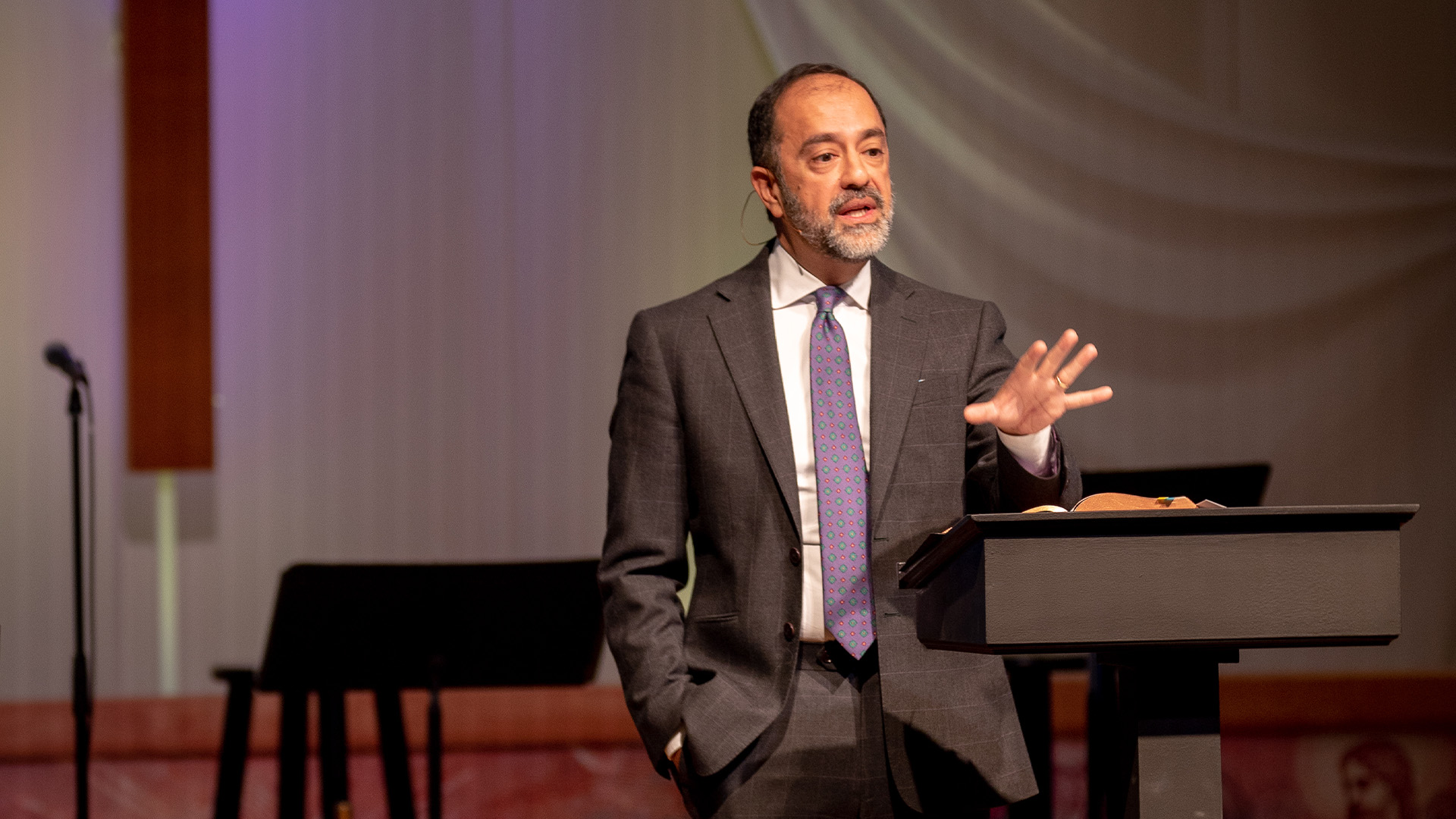
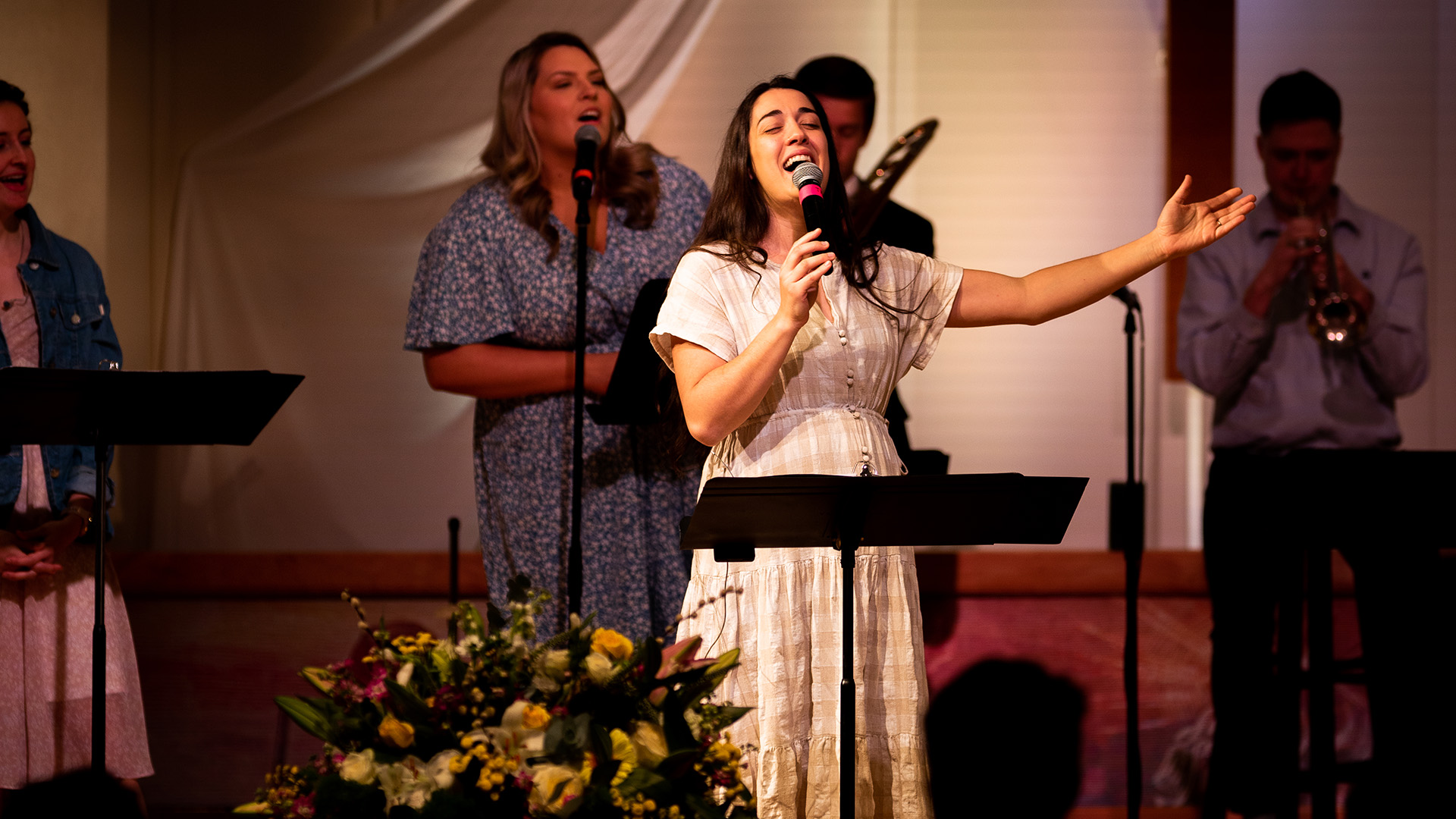
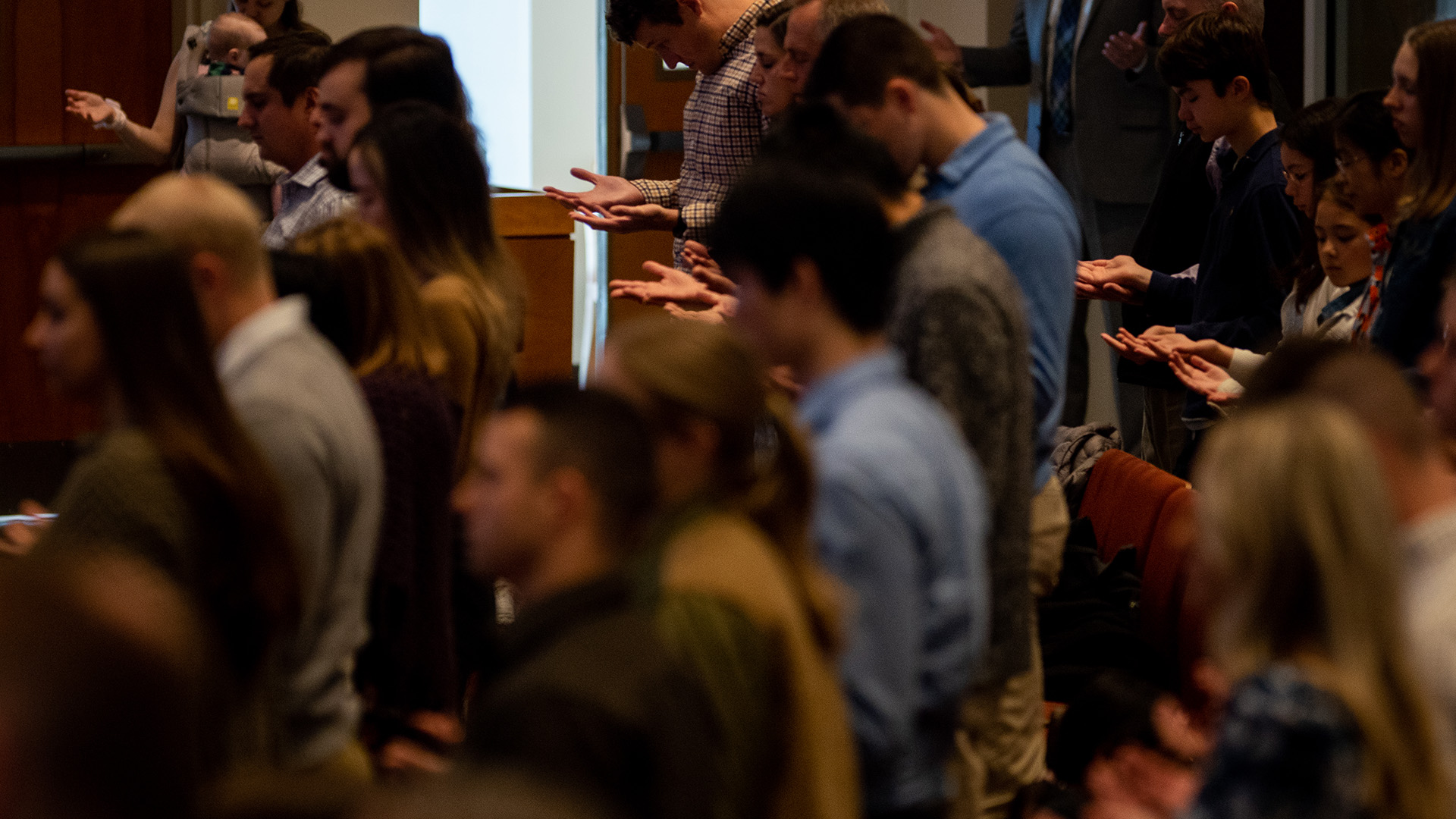
Identity Statements
Our Why:
Chapel Hill Bible Church exists to glorify God by being transformed by the Gospel: our lives, our cities, and our world.
Our Vision:
We are God’s people, living in His place, under His rule, and for His glory.
Our Mission:
To equip our church as a community to reach the Triangle and beyond with the message of Jesus.

Our Core Values
Built on the Gospel foundation, our core values support our mission of reaching the Triangle and beyond with the message of Jesus. Every decision - relational, ministerial, administrative - aligns with the our core values.
Word-Centered
The Spirit of God uses the Word of God to build the people of God for the glory of God.
· The Bible, God’s Word, is our source of Truth.
· The entire story of the Bible tells the Gospel and the Gospel is in every story.
· Preaching the Bible is the bow of the ship, leading forward.
· People saturated with Biblical teaching have tender hearts and eager hands for God.
· Biblical curiosity and learning are lifelong spiritual habits.
· Everything we do should be informed by the Gospel.
One-Another Oriented
We need one another in order to experience the fullness of the Christian life.
· Walking with others who are pursuing Jesus is the Gospel lifestyle.
· In community, we are discipled by and discipling others.Investing in a Life Group yields spiritual returns.
· A Gospel culture fosters a relational atmosphere.
· The Gospel calls for a diversity in gender, age, and ethnicity… a reflection of our cities.
· The local church is God’s central plan for community.
Made for Mission
We are called to “make disciples of all nations.”
· Every Christian is a missionary.
· We have spheres of influence (local, regional, global) to reach with the Good News.
· We are a presence of mercy in our cities.
· We do not separate the verbal announcement of the Gospel from the mercy we show in light of the Gospel.
· The church is a training ground for ministry, regardless of vocation.
· God will call men and women to share the Gospel among the nations.
· Our role is to equip and support them.

Our Statement of Faith
The Holy Scriptures
We believe the Scriptures, both the Old and New Testaments, to be the verbally inspired Word of God, written by men in God’s control, without error and infallible in the original manuscripts, and the final authority in faith and life (II Timothy 3:15-17; II Peter 1:20-21; Psalm 19:7-9).
The Godhead
We believe in one God, eternally existing in three persons — Father, Son, and Holy Spirit — these three being identical in essence, and possessing precisely the same attributes and perfections (Deut. 6:4; Matt. 28:19; II Cor. 13:14).
The Condition of Man
We believe that man was created in the image and likeness of God in innocence and without sin, but that in Adam’s sin humanity fell, inherited a sinful nature, became spiritually dead and alienated from God. Man of himself is incapable of remedying his lost and depraved condition (Gen. 1:26, 2:1-24; Romans 3:10-18, 5:12; Eph. 2:1-3).
The Person & Work of Christ
We believe that the Lord Jesus Christ, the eternal Son of God, became man without ceasing to be God, having been conceived of the Holy Spirit, and born of a virgin, in order that He might reveal God and redeem sinful man. This redemption He accomplished by voluntarily giving Himself as a sinless substitutionary sacrifice on the cross, thereby satisfying God’s righteous judgments against sin. After confirming that redemption by His bodily resurrection from the grave, He ascended to the right hand of His Father where He intercedes on behalf of those who trust Him (John 1:1,2,14,18; Luke 1:34-35; Romans 3:24-26, 8:34).
The Person & Work of the Holy Spirit
We believe that the Holy Spirit is the divine Person who convicts the world of sin, that He brings new life to those who are spiritually dead, that all believers are baptized with the Holy Spirit and thus placed into the one true Church, which is the Body of Christ, that He indwells them permanently, seals them unto the day of redemption, bestows spiritual gifts upon them, and empowers them for service (John 16:7-11, 3:5-8; I Cor. 12:7-11,13; John 14:16-17; Eph. 4:30, 5:18; Acts 1:8).
Salvation
We believe that salvation from the penalty of sin is the gift of God’s grace. It cannot be gained by meritorious works, but is freely bestowed upon all who put their faith in the finished work of Jesus Christ at Calvary. All who so trust the Savior are forgiven of their sins — past, present, and future — and born into the family of God by the regenerating work of the Holy Spirit (Eph. 2:8-9; 1:7; John 1:12).
Security, Assurance, & Responsibility
We believe that all saved (those whom God has redeemed) are kept by His power and are thus secure in Christ forever. It is their privilege to rejoice in the assurance of their salvation. However, this assurance must not be the occasion for sin, for God in Holiness cannot tolerate persistent sin in His children, and in infinite love He corrects them. True faith in Christ is expressed by a fruitful, God-pleasing life (John 10:27-29; Romans 8:28-29; I John 5;13; Heb. 12:6; Matt. 7:20; James 2:20).
The Church
We believe that the true Church, called in Scripture the Body of Christ, is a spiritual organism into which every person who has trusted Jesus Christ for salvation in this present age has been baptized with the Holy Spirit. The Scripture also teaches the establishment and continuance of local churches, groups of redeemed individuals joined together for worship, instruction, fellowship and service (Eph. 1:22-23; I Cor. 12:13; Acts 2:42, 13:1-2).
The Ordinances
We believe that the Lord Jesus Christ instituted two ordinances to be observed by all believers until His return, baptism and the Lord’s Supper. Their observance by each new believer is urged (Matt. 28:19; I Cor. 11:23-26).
The Second Coming of Christ
We believe in the personal, imminent coming of the Lord Jesus Christ for His Church (I Thess. 4:13-18; Zech. 14:4-11; Rev. 19:11-16, 20:1-6).
The Eternal State
We believe that at death the souls of those who have trusted Christ for salvation pass immediately into His presence and there remain in conscious bliss until the resurrection of the body at His coming for the Church, when soul and body reunited shall be associated with Him forever in glory. We believe that the souls of unbelievers remain after death in conscious misery until the final judgment of the great white throne, when soul and body reunited shall be cast into the lake of fire, not to be annihilated, but to be separated from God forever in conscious punishment (Luke 16:19-26; II Cor. 5:8; Phil. 1:23; II Thess. 1:7-9; Rev. 20:11-15).
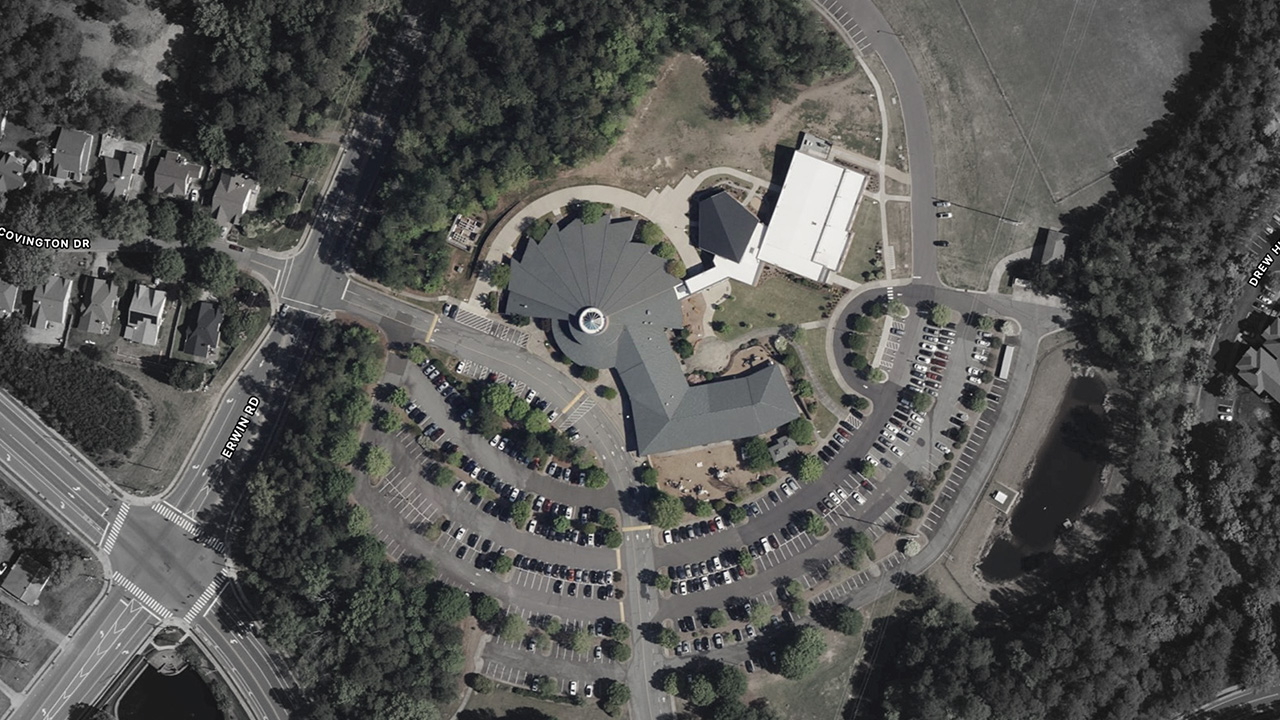
Meet Our Leadership
Each of our pastors, elders, and deacons have been affirmed by our membership to lead willingly, eagerly, and as examples to the church (1 Peter 5:2-3) with the heart of a servant (Mark 10:42-45).


